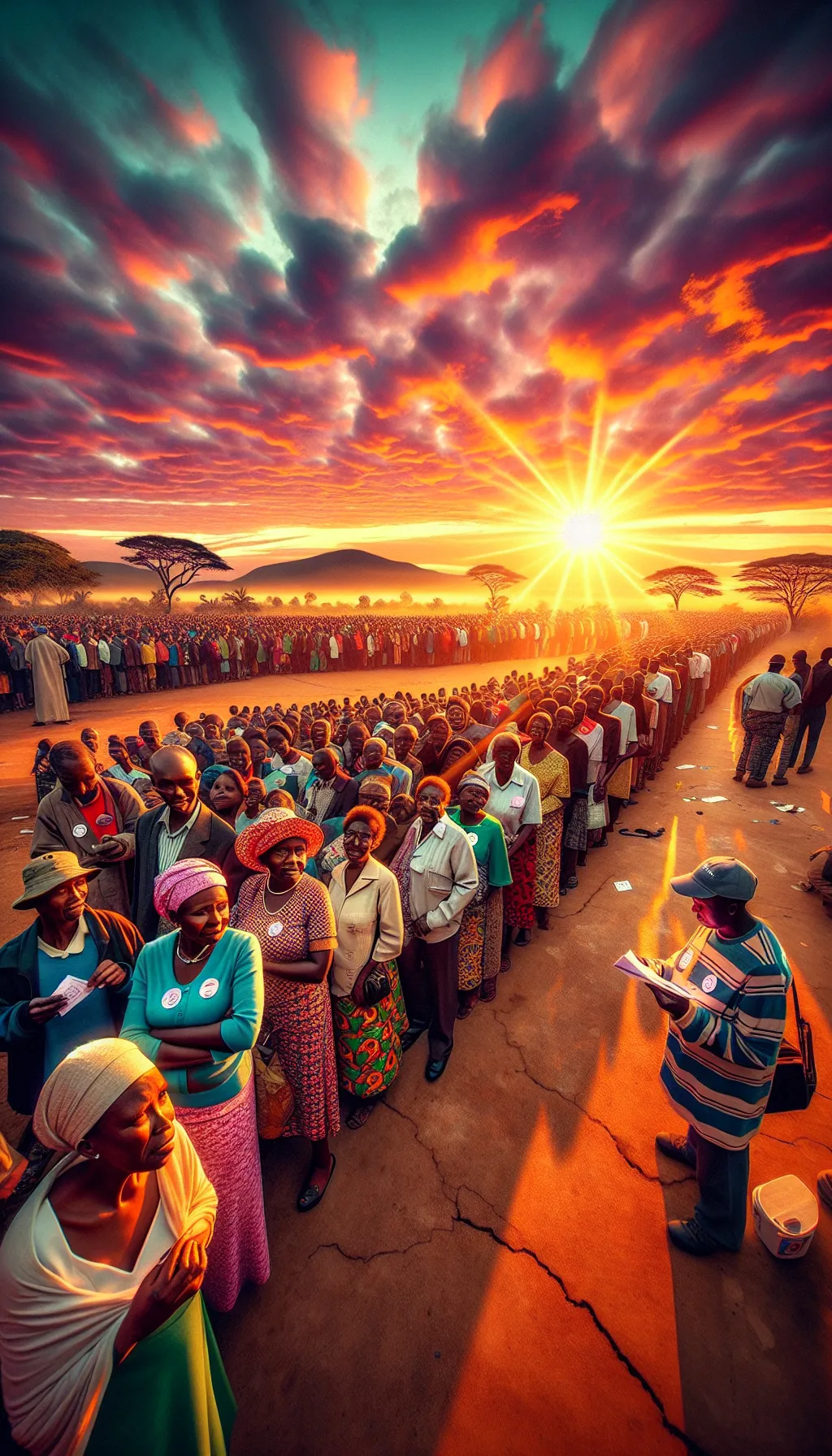Malawi – A New Dawn in Malawi – May 18, 1994
TLDR;
- Event: On May 18, 1994, Malawi held its first multi-party elections after 30 years of authoritarian rule under Hastings Kamuzu Banda.
- Significance: This marked a pivotal shift towards democracy, following a 1993 referendum where Malawians voted for multi-party democracy.
- Outcome: Bakili Muluzi of the United Democratic Front (UDF) won the election, ending Banda’s reign in a peaceful transition recognized internationally as free and fair.
- Impact: The election inspired democratic reforms in the region, symbolizing a new era of hope and freedom for Malawi.
–
Story
The air was thick with anticipation as the sun rose over Malawi on May 18, 1994. For the first time in three decades, the people of this southern African nation were about to exercise a right long denied to them—the right to choose their leaders. The streets buzzed with excitement and hope, as citizens lined up at polling stations, ready to cast their votes in the first multi-party elections in the country’s history.

For 30 years, Malawi had been under the iron grip of His Excellency the Life President Ngwazi Dr. Hastings Kamuzu Banda, a man who had ruled with an authoritarian hand. Political dissent was crushed, and the nation languished under a one-party system. But the winds of change were blowing across Africa, and Malawi was no exception.
The turning point came in June 1993, when widespread protests and international pressure forced Banda to hold a referendum. The people spoke loudly and clearly, demanding a multi-party democracy. Two years later, that demand was realized.
As the ballots were counted, it became clear that the people had chosen change. Bakili Muluzi, a former Minister of Transport and Communications and leader of the United Democratic Front (UDF), emerged victorious, ending Banda’s long reign. Despite initial resistance and a court challenge from Banda’s Malawi Congress Party, the election was validated by international observers as free and fair. The election was not just a political shift; it was a seismic change in the nation’s identity, a rebirth of hope and freedom.
The transition was peaceful, a testament to the resilience and determination of the Malawian people. It was a moment that resonated far beyond the borders of Malawi, inspiring other nations in the region to pursue democratic reforms.
–
| Would a different outcome in the 1994 elections have altered Malawi’s path to democracy? |